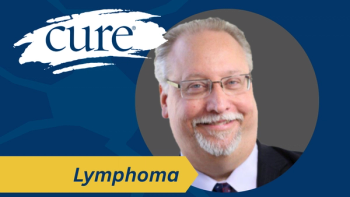
Mosunetuzumab Produces Complete Remissions in Patients with Non-Hodgkin Lymphoma
Some patients with non-Hodgkin lymphoma may soon have a treatment option that could offer complete remission, according to new data presented at the American Society of Hematology 2019 Annual Meeting.
Patients with relapsed or refractory non-Hodgkin lymphoma (NHL) may soon have a treatment option that could offer complete remission, according to results of an ongoing phase 1/1b study examining the drug mosunetuzumab in this heavily pretreated population, presented at the American Society of Hematology (ASH) 2019 Annual Meeting
At the meeting, Stephen J. Schuster, MD, director of the Lymphoma Program at the Abramson Cancer Center of the University of Pennsylvania, reported that the drug, which targets both T cells and B cells, has shown promising safety and efficacy, as well as complete remissions in 22% patients who were relapsed or refractory to CAR-T cell therapy.
Of the group of 270 patients examined, 85 patients had indolent NHL (mostly follicular lymphoma, in 82 patients) and 180 had aggressive NHL (the majority of which, 117 patients, had diffuse large B-cell lymphoma or transformed follicular lymphoma). On average, patients had gone through three prior systemic therapies.
Objective response rate (ORR) was the primary outcome measure, while maximum tolerated dose (MTD) and tolerability were also observed and reported on.
Patients in Group B — which was the portion of the study presented on at ASH – were given mosunetuzumab with step-up dosing on days one, eight and 15 during cycle one, then as a fixed dose on day one of each subsequent 21-day cycle for a maximum of 17 cycles.
In Group B, 46 patients (37%) with aggressive lymphomas saw a decrease in the amount of cancer, with 24 (19%) achieving complete remission. Those with less aggressive disease still saw results; a reduction of disease was seen in 42 patients (63%), 29 (43%) of which achieved complete remission as well.
The researchers noted that at the time of reporting, the maximum dose of mosunetuzumab has not yet been determined, and that further study is needed. However, the data suggested that higher doses of the drug lead to better patient responses.
Remissions appear to be long-lasting in patients who have experienced them as a result of taking mosunetuzumab, with a majority of patients in both the aggressive (17 of 24 patients, or 71%) and indolent (24 of 29 patients for 83%) lymphoma subsets were still disease-free at a median follow-up of six months.
"This could mean that not only does mosunetuzumab have the ability to kill cancer, but also that it may help re-engage CAR T cells and boost the effect of the prior CAR treatment," Schuster said in a press release about the findings.
Of the total group of 270 patients, side effects that caused treatment withdrawal were uncommon. Cytokine release syndrome (CRS), an inflammatory condition that can sometimes be triggered by immunotherapy treatment, was observed mostly at grade 1 in 28.9% of patients.
Additionally, neurological side effects such as headache (15.6%), insomnia (9.3%) and dizziness (9.3%) were reported in 43.7% of patients.
Given their findings thus far — and the fact that complete remission was achieved in patients that previously saw disease progression after CAR-T cell therapies – researchers believe that mosunetuzumab is a promising option for heavily pretreated patients with relapsed or refractory B-cell NHL.
"There is still a large need for new treatments in relapsed or refractory cases, since some patients fail CAR-T (cell therapy) and others are too sick to wait for cell manufacturing," Schuster said. "One of the benefits of this treatment is that it's 'off-the-shelf,' meaning it does not need to be manufactured for each patient."




